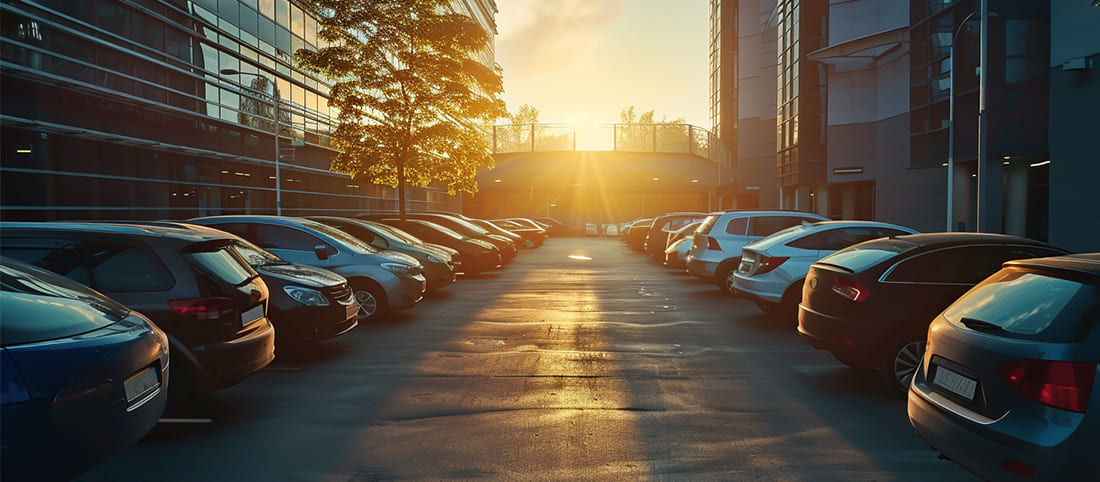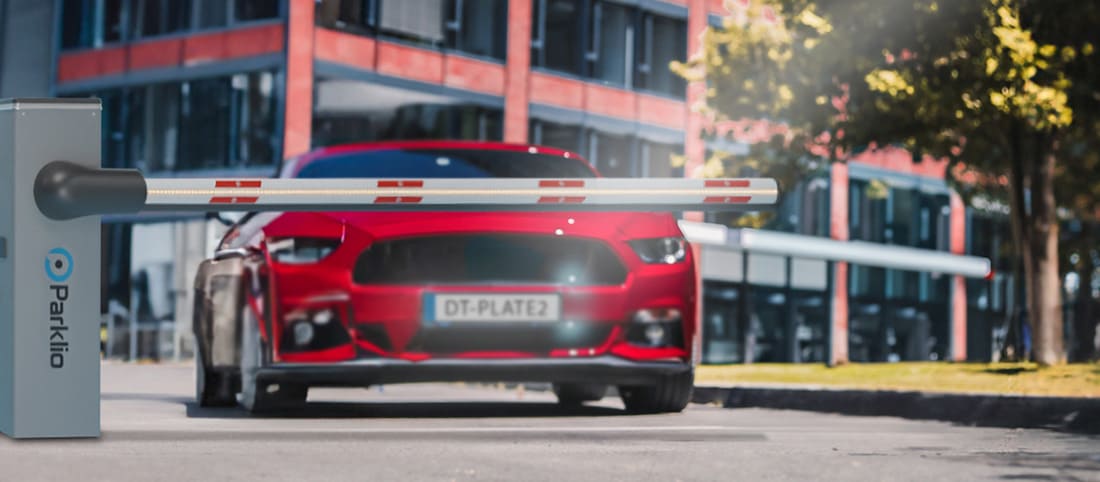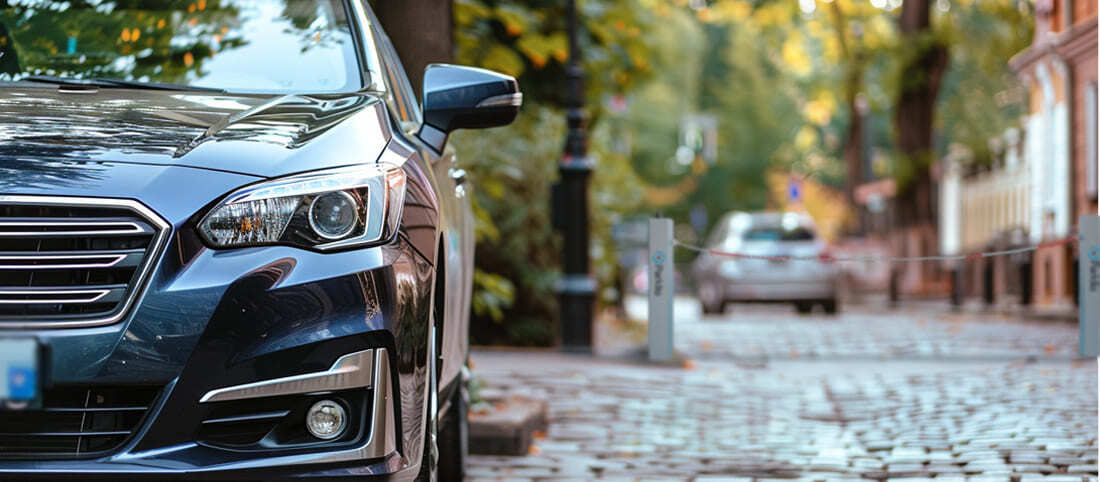What Can I Do If Someone Blocks My Driveway?
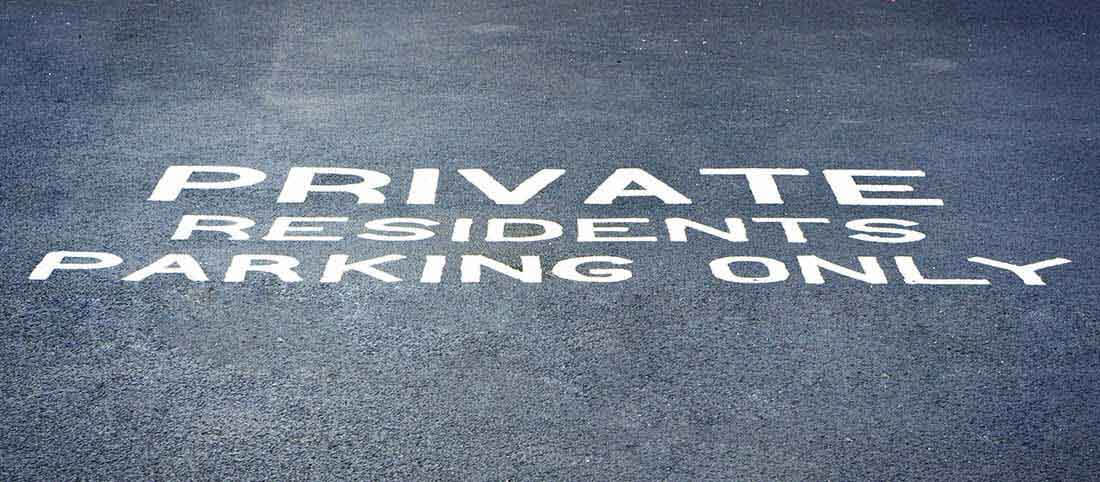
Parking in a residential area is a challenge regardless of which city you live in. The rise in the number of cars, parking restrictions, and stress levels have all contributed to the growth of obstructive parking. It goes without saying that no one should park in such a way that others are unable to use their driveway. When someone blocks your driveway, it can be irritating, especially if it happens often.
Table of contents:
Car blocking my driveway - 5 efficient solutions: DOS and DON'TS
Everyone wants to have a safe, secure driveway. But this is not always possible. Blocking your home entrance can happen for many reasons; construction works in your street, cars parked on the road, or even a neighbor blocking your driveway when you are coming back home after work. Whatever the cause of the problem is, it's annoying and frustrating.
The good news is that there are effective solutions to prevent this from happening. In this blog post, you will learn about the 5 Effective Solutions for parking protection, as well as simple DOs and DON'Ts to follow.
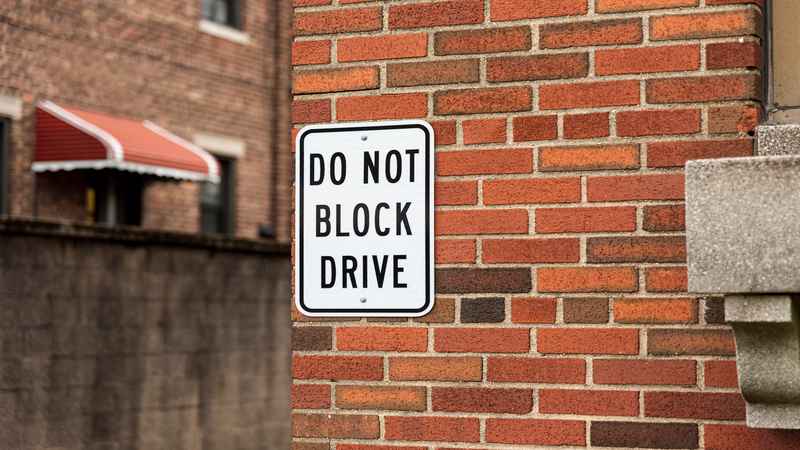
Blocked driveway: Dos and Don'ts
Parking in the wrong spot causes inconvenience for all parties involved. When someone blocks your drive, there are a few things you can do. But first, let's examine how we should and shouldn't react to the situation.
DON’T
- Don't get aggressive. Try not to lose your cool. Losing your temper can lead to a situation that becomes dangerous for both you and the person who is causing the obstruction. If someone blocks you in, try to be patient. Blocking a driveway is a terrible situation, but getting angry won't help you.
- Don't call the police right away. Your first instinct may be to call the police, but filing a report could take up valuable time for officers who have more serious crimes to solve. Instead, try talking with the person who blocked your driveway first, since it could be an easy mistake to resolve without getting law enforcement involved.
- Don't block them in. If you block someone who has parked in your driveway, you may be creating an obstruction to the public street.
- Don't vandalize the car. Do we even need to explain why this is not a good idea? Vandalizing a car is a criminal act and you can be prosecuted. Not only that, but the other owner could attempt to make a claim on your car insurance policy for the damage to their vehicle.
DO
- Talk with the driver. Approach the person in a calm and friendly manner, and identify yourself as the owner of the property where their vehicle is blocking your driveway. If they're still inside their car, knock on their window and ask them if they realize they're creating the obstruction — some people may simply not have noticed that they're causing an issue for you.
- Put a note on the windscreen. You could also leave a note on the windshield politely asking the owner to move their car (emphasis on the word 'politely'). You could write something like this: "This is a private driveway and we would appreciate it if you park in the street next time. Thanks!!"
- Find a solution that works for everyone. If they say no or refuse to move, explain that you need access to your home, so it would be great if they could move their car as soon as possible or let them know they can't stay past a certain time.
5 efficient solutions for securing your driveway
If someone parks on your driveway, it counts as trespassing on private property. So what can you legally do about the offending car blocking your way in and out of your home?
As the owner of the driveway, you could sue the owner of the offending vehicle, in civil court, for financial restitution. The problem is you need to be able to identify who the vehicle’s owner is. In addition, bringing a civil case can be expensive and time-consuming.
Thankfully, there are some practical solutions to stop unwanted parking in your driveway. So, let's take a look at each one!
Put up a "No Parking" Sign
A way you can prevent people from obstructing your home entrance/exit is by using "No Parking" (or “Do not block driveway”) signs. Simply put up a few of these near the entrances to your driveway. This will prevent drivers from parking there as well as let the casual passers-by or your neighbors know that the property has been protected. Even better if you include the line "Unauthorised vehicles will be towed away at the vehicle owner's expense" as a reminder that their wallet might become lighter.
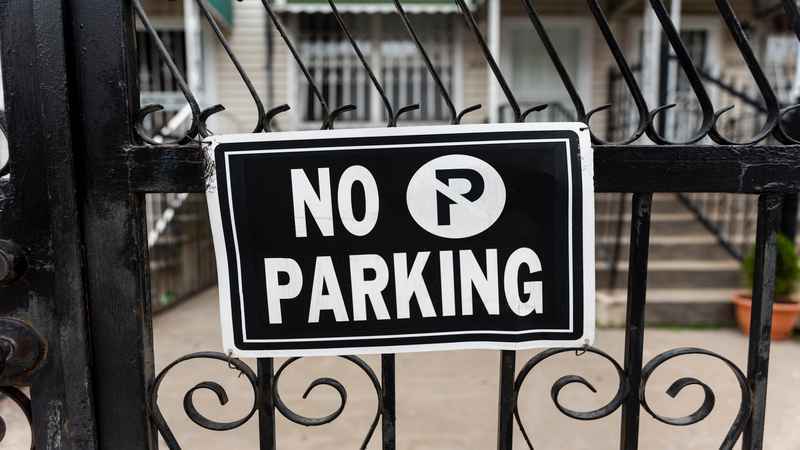
Paint a line for your driveway
Let's face it: our driveways are important to us. We need them not just to get in and out of our house, but also to show others where our property line begins and ends. If you find someone is blocking your driveway constantly, paint an obvious line for your driveway to remind people that this is a private drive. People will soon get the hint that parking is not permitted there.
Protect it with a parking barrier
A parking barrier is the most affordable and easy-to-use way to successfully prevent people from parking in your driveway. However, not all parking barriers are created equally. They vary from hard-to-use manual barriers to smart automatic barriers. That is why we have decided to compile an evaluation of all driveway protective barriers available on the market. Examine the main characteristics of the barriers, learn what makes them unique, and choose the best solution for your parking issue.
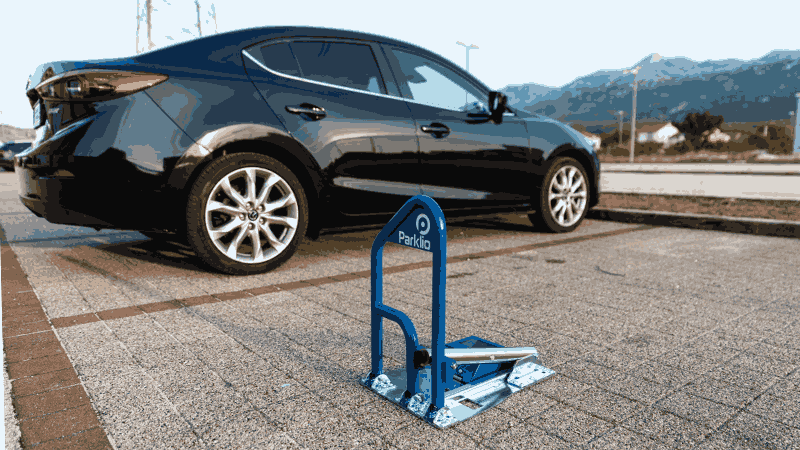
Install a chain barrier
Another option is to install a chain barrier to protect your home access, making parking a car physically impossible. Nowadays, automatic chain barriers can be unlocked remotely using your phone or car remote controls. The main benefits of this type of chain barrier are its automated folding option and its length, which ranges from 4 to 20 meters, allowing you to protect a large driveway. The chain is simple to control, whether you need to raise or lower it. It can also be set to close automatically when the vehicle leaves.
Put up retractable parking bollards
Driveway bollards can be very useful for access control when a chain barrier is not an option due to narrow home access or for more luxurious objects. It provides the same level of security as well as the desired aesthetics to your private property. Installing a retractable parking bollard is one of the most effective ways of preventing the annoying habit of people parking in your driveway or blocking your access to it.
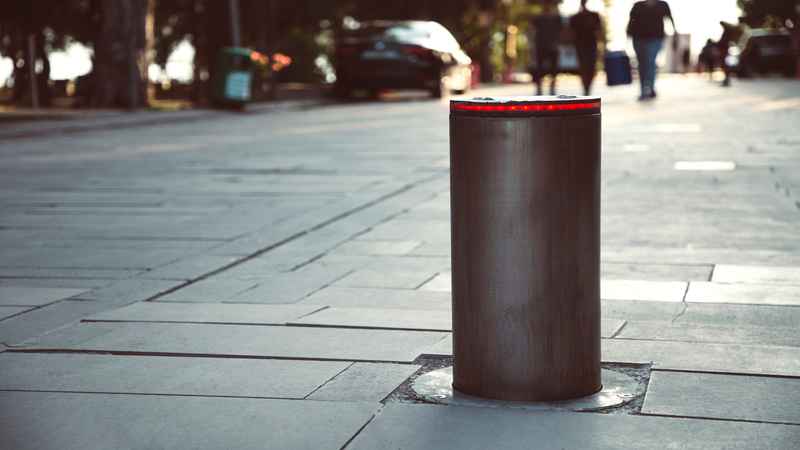
Is it illegal to block a driveway?
Now that we've mastered the aforementioned driveway-protection strategies, let's investigate your legal rights and discover the correct answer to the question: is it illegal to block a driveway? Unfortunately, there is no straightforward yes or no answer. The legality of blocking a driveway is determined by a variety of variables, including where you reside, whether the car is parked on private property or on a public roadway if you are locked in your driveway at the time the vehicle is obstructing it, and other reasons.
UK
There is no clear regulation in the United Kingdom regarding obstructing a driveway. The Highway Code, which provides basic regulations and instructions for safe road use, has two types of provisions: those that are legally binding and those that are only guidelines. The Highway Code Rule 243 reads, 'do not stop or park in front of an entrance to a property,' which suggests that people should not stop in front of a driveway, but it is not legally obligatory since it does not contain the word "must." Still, blocking your driveway is illegal if you reside in London and a car that is causing the obstruction is parked partially or entirely on the pavement (the highway code rule 244).
However, in many communities, local councils have taken on the obligation of enforcing parking regulations, a practice known as Civil Parking Enforcement (CPE). If your municipality has embraced CPE and a car blocks a dropped curb driveway, you should contact the local authority and request that the vehicle be relocated for safety reasons, since this is a CPE violation.
If your local council has not implemented CPE, or if a vehicle accesses your driveway on private land over which the council has no power, your sole alternative is to contact your local police department to report someone who has illegally parked in your drive. While the police will acknowledge the car is technically trespassing, they will classify it as a civil offense, dropping it far down their priority list and meaning you would need an eviction notice from the courts before being able to remove the vehicle.
USA
In the United States, it is illegal to block a driveway, even your own. It's a matter of public safety: emergency services like fire trucks, ambulances or police cars need that space to get in and out. An obstructed driveway might also prevent vehicles from pulling out to the road to seek emergency services. Still, in the absence of a citizen’s complaint or an emergency, in most cities, the police will ignore a vehicle parked at the curb, blocking an entrance.
If you're having trouble getting into or out of your driveway because someone else has parked there, here's what you can do: Inform the parking enforcement or non-emergency police number of the automobile obstructing your driveway. Although having your drive blocked isn’t legal, authorities do not always react to such complaints. It really depends on the density of your neighborhood and the crime rate. If they do react to your call, they will almost certainly issue a ticket and tow the vehicle away.
You also have the option of calling a towing company, if that person is completely parked on your property. If you rent, the owner of the property may be required to contact the towing company and be there, and if you are a member of the Homeowners association (HOA), the towing company may require proof that the person requesting the tow is operating under the authority of the HOA and is present on site for the hauling.
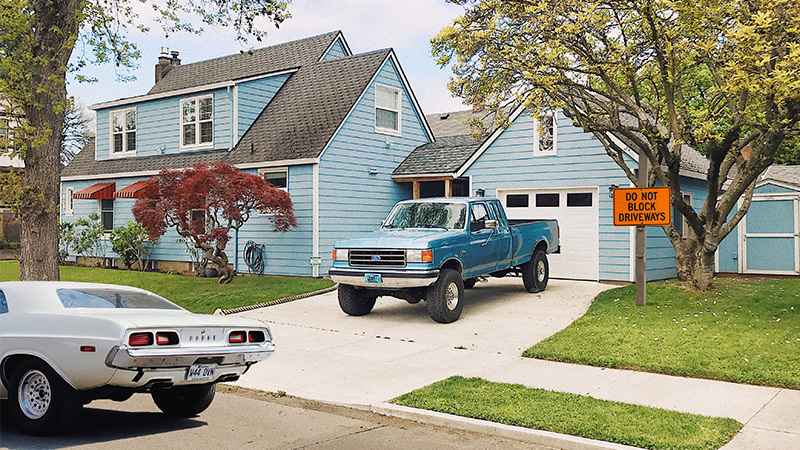
France
Parking on the road in front of an access to a person's property is prohibited under the 'Code de la route', however, it's not always simple to enforce. If someone is constantly blocking your driveway or garage, most likely a neighbor who refuses to understand that s/he cannot park there, and you have exhausted all other options, you can notify the municipal police. Once you persuade them to arrive, they are likely to penalize the driver for 'stationnement gênant,' which translates as inconvenient parking. Alternatively, you can send that offender a formal warning letter with a receipt slip stating the inconvenience caused and referencing article R417-10 of the Code de la Route, points II.5 and III.1. Remind them that legally they could be ordered to pay damages to you for the inconvenience. In the case that this is unsuccessful, you have the legal option of petitioning the tribunal judiciary court which is something you can do even without the representation of a lawyer.
The code also stipulates that parking on the street in front of a garage, even if you own it, is unlawful. However, if you can prove that you have only obstructed your own garage, the authorities may be tolerant.
Germany
Blocking a driveway is not legal in Germany however, parking in a driveway is permitted as long as you provide adequate room for another vehicle to exit. If someone parks on the road in front of your driveway, you may request that the Ordnungsamt (the city or municipality's second-tier police agency) help you in removing the vehicle. Parking penalties often run between €10 and €110, and if a vehicle is impeding traffic or a driveway, it will almost certainly be towed, and fast. Towing fines in Germany are highly costly, therefore neighbors are very cautious not to create obstructions, particularly if you have a sign that says "Ausfahrt freihalten" ("do not block the exit").
Italy
Parking in Italy is complicated. Despite the fact that parking laws are very clear about what is right and wrong, many people continue to violate the rules. A driveway, according to art. 3 n. 37 of the Civil Code, is an access area suitable for parking one or more vehicles. If you park in front of the drive and above the sidewalks, you could be fined starting from €84,00 to €335,00. The fines are based on the number of days that you have not removed your car from that location.
Furthermore, if you block a driveway or parking space reserved for disabled people, you will be fined even more. You will not be fined only if you have a disability badge or license plate that allows you to park on the sidewalk or in front of a driveway.
Final Thoughts
Securing your driveway can be difficult, which is why we have taken the time to teach you a few practical strategies to prevent someone from parking in an obstructing way as well as explain different legal regulations that apply in various countries. Since the legislation is so confusing and enforcement is so slow, the best method to fix this problem is to prevent your driveway from being blocked by using parking protection. Whether you pick a no-parking sign or a parking barrier—or something else entirely—you now have the knowledge you need to safeguard your driveway against unwanted parking. So take note of our ideas, and use what works best for you!
